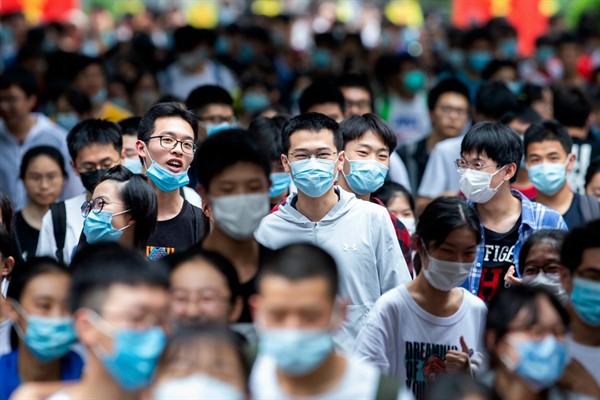Editor’s note: The following article is one of 30 that we’ve selected from our archives to celebrate World Politics Review’s 15th anniversary. You can find the full collection here.
China’s post-Mao generation, born since Mao Zedong’s 1976 death, has had formative life experiences that fundamentally differ from China’s older generations. Unlike their elders, Chinese born in the post-Mao era have not suffered the trauma of civil war, revolution, collectivization, starvation or the chaos of Mao’s Cultural Revolution. They also have been far more geographically mobile than older generations, whose ability to move freely was highly constricted by the government’s strict residential registration (hukou) system. As China’s post-Mao generation has come of age, they have witnessed the introduction of capitalism into the Chinese economic system, and with it, the most impressive sustained rate of economic growth that the world has ever seen. Further, unlike prior generations, for virtually the entirety of their adult lives, the post-Mao generation has had access to the Internet. In addition, and again in contrast to their elders, most of those born in the post-Mao period have no siblings.
In some respects, the political attitudes and behavior of China’s post-Mao generation diverge from those of their parents and grandparents. Relative to their predecessors, they are more skeptical about China’s current political system, more supportive of liberal democratic ideals and more likely to engage in contentious collective actions. At the same time, they are more nationalistic and defensive against China’s detractors. Yet in many other ways, the political attitudes and behavior of China’s post-Mao generation parallel those of older Chinese: They generally accept, and to a surprising degree even support, the political status quo led by the Chinese Communist Party (CCP), and they are satisfied with their lives and optimistic about China’s future.

